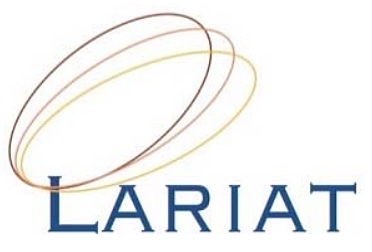Reata to Use IPO to Further Develop Bardoxolone Methyl as a Pulmonary Hypertension Therapy
Written by |

 Reata Pharmaceuticals, Inc., recently announced in a press release the pricing of its initial public offering of 5,500,000 shares of its Class A common stock at $11.00 per share, before underwriting discounts and commissions.
Reata Pharmaceuticals, Inc., recently announced in a press release the pricing of its initial public offering of 5,500,000 shares of its Class A common stock at $11.00 per share, before underwriting discounts and commissions.
The Irving, Texas-based clinical-stage biopharmaceutical company says it intends to use net proceeds from the offering to advance development of its lead product candidate, the pulmonary hypertension (PH) drug bardoxolone methyl, through a Phase 3 trial and additional Phase 2 clinical trial programs, and to provide funds for working capital and other general purposes, such as preclinical studies and more clinical trials.
Reata has granted the underwriters a 30-day option to purchase up to 825,000 additional shares of its common stock at the IPO price, which is trading on the NASDAQ Global Market under the ticker symbol “RETA.”
Bardoxolone methyl and Reata’s other lead product candidate, omaveloxolone, are members of a class of small molecules called antioxidant inflammation modulators (AIMs) that modulate the activity of key regulatory proteins involved in the biology of mitochondrial function, oxidative stress, and inflammation, influencing the expression of hundreds of genes by activating the master transcription factor Nrf2. This activation stimulates the production of proteins with antioxidant, anti-inflammatory, and cytoprotective properties, thereby helping promote proper mitochondrial function.
Reata notes that AIMs also inhibit the major pro-inflammatory and cancer-promoting transcription factor NF-kB, and that a variety of effects exerted by AIMs have been documented in extensive non-clinical research, as well as in clinical trials. Since oxidative stress, mitochondrial dysfunction, and inflammation are features of numerous diseases, AIMs have many potential clinical applications, and have been the subject of more than 200 peer-reviewed scientific papers.
PH is a multi-organ condition characterized by abnormally high pressure in the network of arteries and veins carrying blood to and from the lungs. The condition is believed to be caused by a number of underlying defects, and due in part to vasculature narrowing as a result of inflammation, remodeling, proliferation, and endothelial dysfunction, according to studies referenced on Reata’s website.
Mitochondrial dysfunction has also been implicated in patients with PH who experience increased pressure on the right side of the heart, which can ultimately lead to ventricular failure. According to referenced research, while PH does not involve metastasis or disruption of tissue boundaries, it does share some characteristics with cancer, including hyperproliferation and resistance to apoptosis (or programmed cell death) of vascular smooth muscle and other cells, and impaired energetics of skeletal muscle.
Bardoxolone methyl is described as an oral, once daily, drug candidate that has been granted orphan drug designation for the treatment of pulmonary arterial hypertension (PAH) by the U.S. Food and Drug Administration (FDA). According to Reata’s website, bardoxolone methyl directly targets the bioenergetic and inflammatory components of PH.
People with PH experience mitochondrial dysfunction, increased production of NF-kB and related inflammatory pathways involved in reactive oxygen species (ROS) signaling, cellular proliferation, and fibrosis. Bardoxolone methyl, through the combined effect of Nrf2 activation and NF-kB suppression, has the potential to inhibit inflammatory and proliferative signaling, suppress ROS production and signaling, reduce production of enzymes associated with fibrosis and tissue remodeling, and increase ATP (energy) production and cellular respiration.
By addressing a novel pathway in PH, Reata’s researchers believe bardoxolone methyl may provide benefits beyond current PAH therapies, and that the drug’s bioenergetic effects may result in increased functional capacity for PH patients (i.e., the ability to perform everyday functions due to its effects on energy production and cellular respiration).
The researchers also reported that bardoxolone methyl has potential anti-inflammatory, anti-proliferative, and anti-fibrotic effects, and targets multiple cell types relevant to PH, including endothelial cells, smooth muscle cells, and macrophages. Furthermore, the drug may, over an extended period of time, affect synergistic effects of vasoconstriction, thrombosis, fibrosis, and vascular remodeling within the pulmonary arterial system, potentially improving patient outcomes.
Reata’s overview also notes that, to date, it has been observed that bardoxolone methyl does not induce systemic hemodynamic effects or drug-to-drug interactions in PH patients, a fact that may provide clinicians with greater flexibility in dosing, ultimately resulting in a more favorable safety profile, and allow for its use in combination with other therapies with a greater incremental effect than an additional vasodilator.
 Formerly designated RTA 402, bardoxolone methyl is currently being assessed in the Phase 2 LARIAT clinical trial for the treatment of PAH and PH due to interstitial lung disease (PH-ILD), each of which are subsets of PH.
Formerly designated RTA 402, bardoxolone methyl is currently being assessed in the Phase 2 LARIAT clinical trial for the treatment of PAH and PH due to interstitial lung disease (PH-ILD), each of which are subsets of PH.
LARIAT is assessing the safety and efficacy of bardoxolone methyl relative to placebo in PH patients in order to determine the recommended dose range, evaluate the change from baseline in the 6-minute walk distance (6MWD, a test to measure exercise/functional capacity), and determine the effect of bardoxolone methyl in PH associated with connective tissue disease (CTD), interstitial lung disease, and idiopathic etiologies, including subsets of patients with WHO Group III or WHO Group V PH following 16 weeks of study participation.
The drug is also in a Phase 2 study in Japan in patients with chronic kidney disease (clinicaltrials.gov/ct2/show/NCT02316821).
Initial data from the LARIAT study were presented at the 2015 American College of Chest Physicians (CHEST) annual meeting in Montreal, Canada, in October 2015. A Phase 3 study in patients with CTD-PAH is planned for 2016.
After deducting underwriting discount, commissions, and estimated offering expenses, Reata says the IPO will generate approximately $52.5 million, excluding any exercise of the underwriters’ option to purchase additional shares.
Citigroup, Cowen and Company, and Piper Jaffray & Co. are acting as joint book-running managers for the Reata offering, being made only by means of a written prospectus relating to these securities, a copy of which may be obtained for free from:
Citigroup Global Markets Inc.,
c/o Broadridge Financial Solutions,
1155 Long Island Avenue, Edgewood, NY, 11717,
telephone: 1-800-831-9146;
Cowen and Company, LLC,
c/o Broadridge Financial Services,
1155 Long Island Avenue, Edgewood, NY, 11717,
Attn: Prospectus Department,
telephone: 1-631-274-2806, or fax 1-631-254-7140; or
Piper Jaffray & Co.,
Attn: Prospectus Department,
800 Nicollet Mall, J12S03, 55402,
Email: [email protected], or telephone at (800) 747-3924
For more information, visit Reata Pharmaceuticals at news.reatapharma.com.
Sources:
Reata Pharmaceuticals, Inc.




